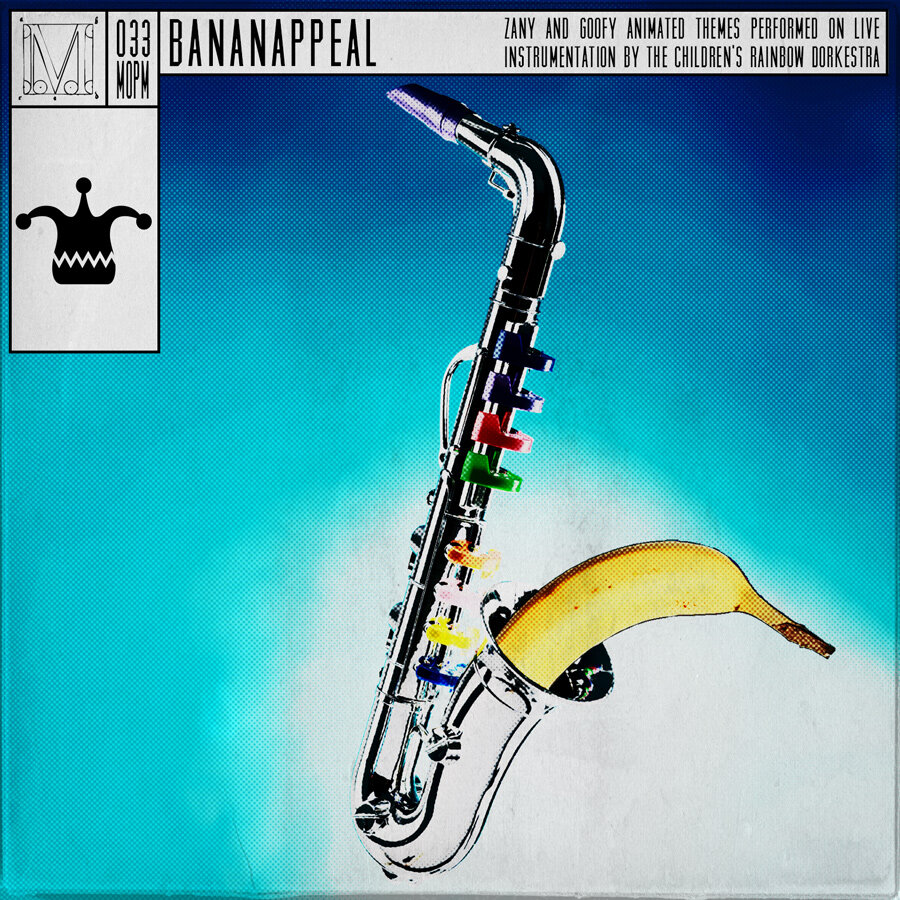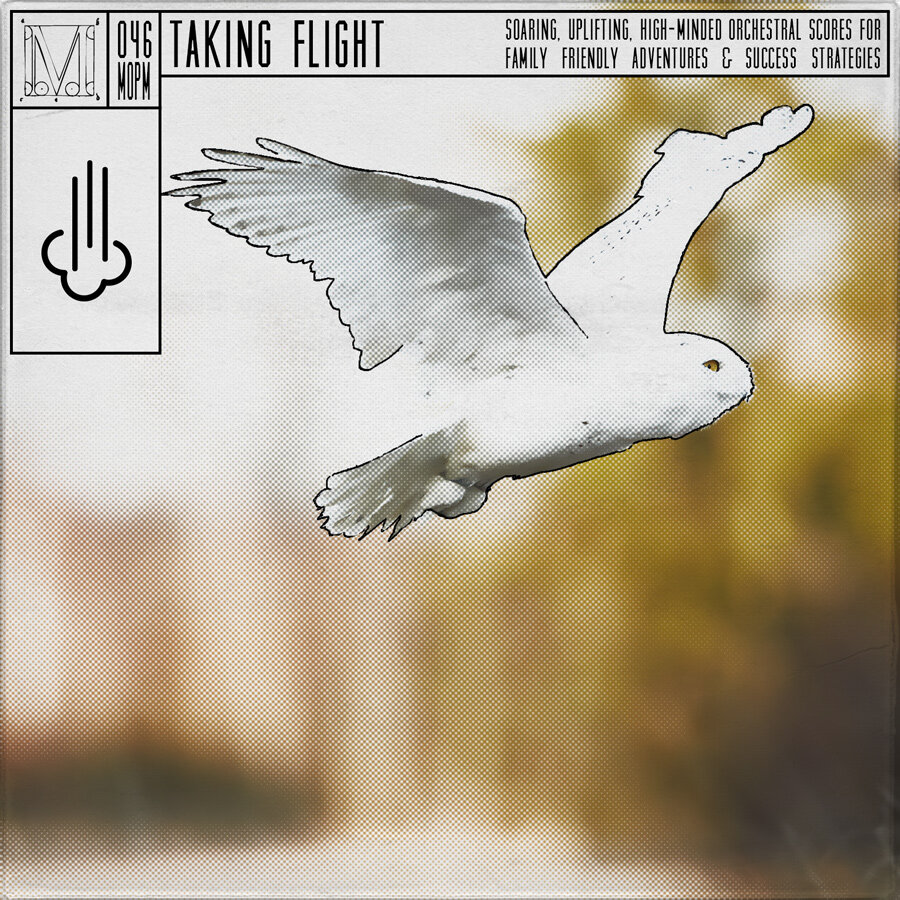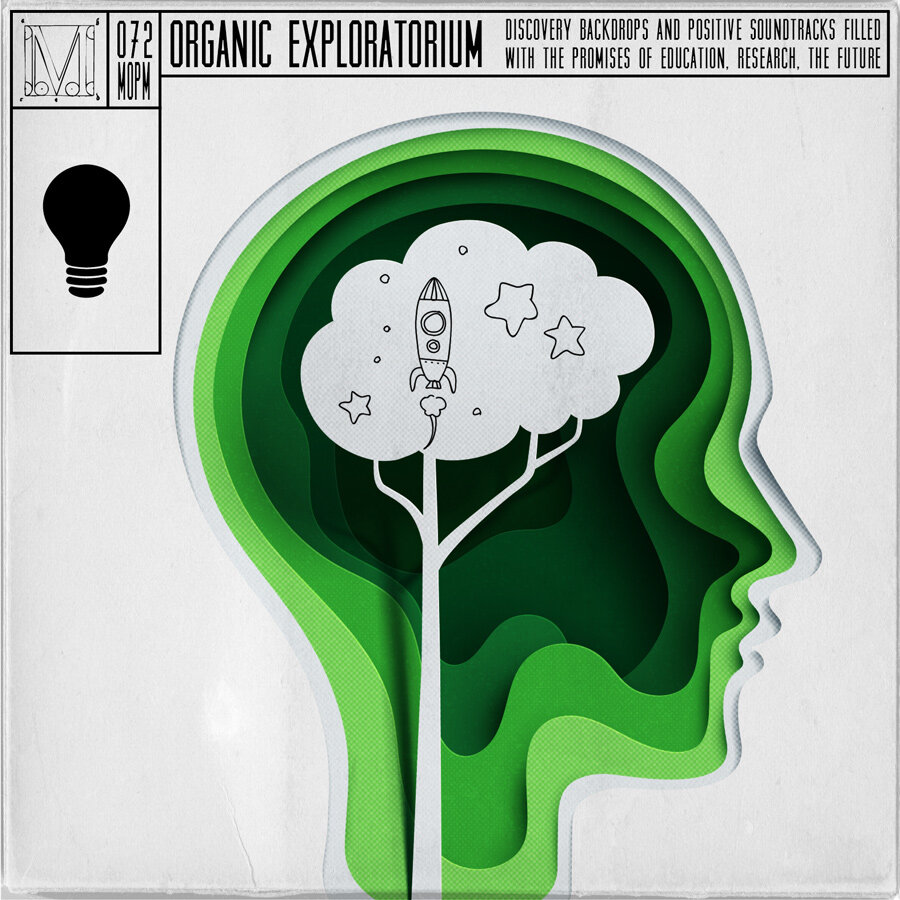Call & Response: Sam Ecoff
(10 min read)
Sam Ecoff is a talented composer, owner of Red Rocket Music Publishing, and heads up our Modus Operandi Production Music (MOPM) label. In this feature we talk about his relationship with production music, his massive modular synth rig, and the story behind the label. He also can break some bones, literally.
LAB NOTES (LN): If you had to boil your musical journey into one sentence, what would it be? (Run-on sentences accepted and encouraged.)
Sam Ecoff (SE): I have a deep-seated passion and love for both music and technology, and the intersection of the two creates an unending world of possibilities which will keep me busy for the rest of my life.
LN: You’re the mastermind behind the Modus Operandi label here at The License Lab. How did that come about?
SE: Short answer: I double-dated to Junior prom with Daniel, the brains and mojo behind The License Lab. The longer answer is that I have been composing music for over 30 years, and have been writing production music for over 20 years. I have also been an instructor of classical piano and composition at the largest private conservatory in the U.S. since 1997. Stepping up to manage Modus Operandi was the perfect marriage of composing and working with other musicians to help them create amazing music and build their careers.
When other people value your music, when out of the millions of tracks out there, they license your tunes, it gives you a reason to keep creating.
LN: What do you think makes Modus Operandi unique?
SE: I think the most important thing about Modus Operandi is that first and foremost, the music is designed to support visual images, to set a scene, and to convey an emotional message. It's not virtuosic for the sake of virtuosity. It's not music that's constantly shouting, "HEY LOOK AT ME!!!" It's music that quietly (and sometimes not so quietly) supports a scene and makes your viewers feel something.
I think when you have virtuosic capabilities, there's always a temptation to show what you can do. While it's fun and gets you noticed, it doesn't always serve the production best. Perhaps I'm fortunate in that regard to be equally bad at playing all of the instruments in my studio, because I'm never tempted to do something virtuosic. It turns out that a lot of the time, simple pictures are best.
LN: What is it about production music that you enjoy most?
SE: I love the fact that The License Lab places emphasis on the creation of high quality music over creating a large quantity of music. I love the fact that it provides an incentive to continually be creative. When you're a young person with few responsibilities, you create because you have the need to express yourself. As your life progresses and you have a spouse, kids, car payments, and a mortgage, being creative and self-expression starts to feel like a luxurious use of time that you can't afford. However, when other people value your music, when out of the millions of tracks out there, they license your tunes, it gives you a reason to keep creating. If someone actually wants and needs your creative output, it feels less like an indulgence and more like a responsibility.
LN: How do you describe production music to non-industry people?
SE: I often compare it to the world of visual art. They figured it out a long time ago. There are people who major in art in college, and they create beautiful paintings, sculptures, and ceramics. They make the world a more beautiful place. After college, they go on to be starving artists. Then, there are graphic designers. Almost no one sees what they create as high art, but there's a huge demand for what they do. Companies are willing to pay for designs for cereal boxes and toilet paper wrappers. Graphic designers generally like their work and make a great living at it. I write the musical equivalent of toilet paper wrappers. It's awesome that there are composers who are willing to devote their lives to composing art music. They're people who are willing to express their creative musical vision and put it out there even if almost no one wants to hear it. That's amazing, and I respect it. However, being a starving artist is only sustainable for so long. At some point, the thing that keeps you going is finding that someone actually values and needs your creative output. It's not even really about making a living as a composer (although that's nice too). It really comes down to whether there's a reason to continue to create.
There's something about having an infinite number of choices that's paralyzing creatively.
LN: Do you have a favorite MOPM album?
SE: It's very difficult to pick just one. Some standouts for me include MOPM-029 Leisure Suite, which is probably the most fun I've ever had writing an album, MOPM-033 Bananappeal where I finally got to be as silly as I like to be, and MOPM-046 Taking Flight where we got to work with many incredible musicians from the Milwaukee Symphony.
MOPM-072 The Organic Exploratorium will always have a special spot in my heart. I think it's one of the most musical albums we've done. It was completed in late 2018, just before I was diagnosed with cancer. It became the soundtrack to my treatments, often playing in the car on the way to and from the cancer clinic, and while I lay on the table with my head strapped down during radiation treatments. It has this sort of underlying positivity, curiosity, and a sense of wonder. It seemed to perfectly describe the medical technologies that I experienced as I was experiencing them.
LN: Rumor has it that you have an incredible modular synth rig. Can you tell us how that came to be? How do you view it compared to more traditional instruments?
SE: As a child, I wore out three copies of Wendy Carlos's excellent album Switched-On Bach. That probably explains my great love of both Baroque music and synthesizers. When I was completing my undergraduate degree in composition, I had to take a class called "Electronic Music." At first, I was so disappointed to see that the lab where we worked lacked modern equipment. It was the late 1990's, and they had an ARP 2600 modular synthesizer and reel to reel 4-track tape machines that were as large as a refrigerator. However, getting my hands on a real modular synthesizer was a game-changer for me. I later purchased my very own ARP 2600. As the second golden age of modular synthesis dawned, I started collecting modules to augment the 2600's capabilities. Before I knew it, I had spent fourteen years collecting, and I had over 100 modules from companies like Blacet, Doepfer, PAiA, Modcan, Wiard, Metalbox, MOTM, and others.
One of Sam’s non-mainstream instruments, the Array M'bira
Modular synthesis is unique in that you have to essentially build your own instrument every time you use it. Other than recording the results, there's no real way to save your sounds, or recall them later. However, it's really immediate. There is a knob for every function. There's no diving through menus. It's very immediate, and it encourages you to get in there and make changes. As electronic instruments go, it's exceptionally versatile and expressive. The modular synthesizer is really fantastic, but it's just one of many unique instruments in my studio. I seem to be attracted to instruments which aren't mainstream. My collection includes an Array M'bira, Marcodi Harpejji K24, two electric Nagoya Harps, a 1947 Deagan Vibraharp, a hulusi, a xaphoon, a tenor Orff xylophone, a three-octave chromatic set of boom whackers, an Otomatone, and a funny 64-key spinet piano I rebuilt and modded with a mandolin rail and options for cloth, felt, and paper rails.
LN: What inspires you?
SE: I love having lots and lots of options. If I can buy a musical instrument that has 20 options instead of just two, that's what I go for every time. However, what actually inspires me creatively is just the opposite. Having only a few choices makes composing and making music much easier. There's something about having an infinite number of choices that's paralyzing creatively. I will often begin writing with a set of strict limitations. Sometimes it's constraining myself to certain instruments to start, or sometimes it means taking a field recorder to another location to gather sounds. A track like "Kitchen Redo Redux" was made almost completely with things I found in my kitchen.
LN: What do you do when you’re not creating music?
SE: I teach unarmed combat, self defense, and weapons at a local martial arts school. At first glance, I'm sure it seems incongruous -- the nerdy, mild-mannered composer who fights and breaks bones. However, the discipline required to be a great martial artist is the same discipline which is required to be a great musician. I don't claim to be either, but martial arts keeps me slim and fit, and it's a great outlet for the daily frustrations we all face.
LN: If you were trapped on a desert island, what 5 albums could you not live without?
SE: That's very tough. I chew through such a huge variety of albums each year. I find I don't often return to any of them many times. I suppose if I had to pick some favorites, I'd include Imogen Heap's Ellipse, Philip Glass - Piano Works performed by Víkingur Ólafsson, Olafur Arnalds Re:member, Guy Sigsworth's STET.





